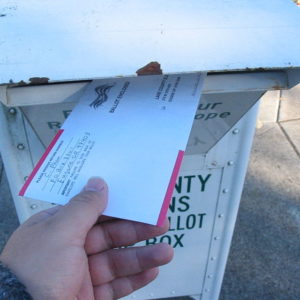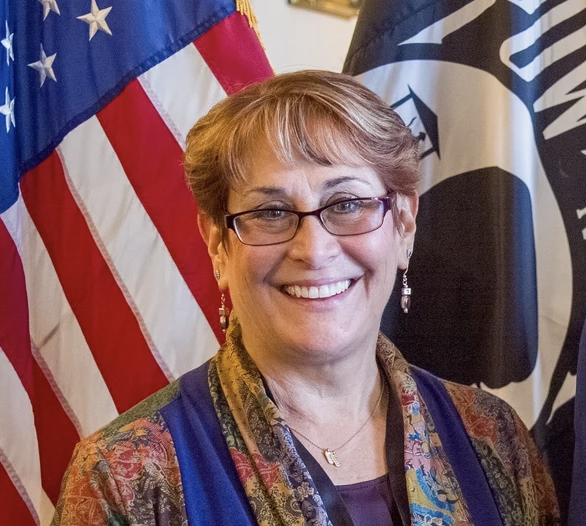In recent weeks as the country has been dealing with the outbreak of COVID-19, I’ve become increasingly concerned with organizations and Congress who are pushing for mail-in voting. This would federalize our elections allowing Washington to dictate the terms of our elections.
Mail-in Voting or Vote by Mail is different than voting by absentee ballot. In order to receive an absentee ballot, a voter must take the initiative to request one for a specific reason. With mail-in voting, on the other hand, the municipality would send out a ballot to every person listed on the checklist. There are several problems with this process.
First, there needs to be a cleanup of our voter rolls.
According to an article by Hans von Spakovsky, an attorney and a former member of the Federal Election Commission (FEC), “state voter registration lists across the country are notoriously inaccurate and out-of-date, with many jurisdictions having duplicate or triplicate registrations, registrants who have died, and registrations lacking full address data. Some counties in the United States have more registered voters than voting-age citizens.”
In New Hampshire, some Supervisors of the Checklist clean up the rolls. However, New Hampshire law only mandates they purge the checklist once every ten years, which almost certainly means ballots being mailed to New Hampshire addresses where voters have moved or passed away.
It’s easy to imagine a new resident receiving a ballot at their new address, one that is not addressed to them. Will the throw it out? Or will they fill it out? There is nothing to prevent individuals from casting ballots that do not belong to them. Election officials are no longer even allowed to match signatures of mail-in absentee ballots to ensure that the person who filled it out was the registered voter.
Currently, there is no other way to match registered voters with their mailed-in absentee ballot.
States relying on this process may send piles of ballots to obsolete addresses or to registrants who have died. According to Spakovsky, California voter rolls are tainted with thousands of deceased registrants, as well as voters who say they live at commercial addresses.
In Swissvale, Pennsylvania, one man had seven simultaneous active voter registrations at the same address. An all-mail election would send seven ballots to this house.
It is often the low income and elderly who are preyed upon with this method. For instance, in Rio Grande Valley, politicos roam preying on the most vulnerable voters and voting their ballots for them. In Cameron County, Texas, nine politicos were charged with voter fraud related to mail ballots.
Another problem with elections by mail is missing ballots.
In an article by RealClearPolitics, it states, “between 2012 and 2018, 28.3 million mail-in ballots remain unaccounted for according to data from the federal Election Assistance Commission.” That number is undoubtedly higher when you figure Chicago and other municipalities across the country never responded to their request.
While there is no proof the ballots were used fraudulently, the numbers were enough to concern the Public Interest Legal Foundation (PILF).
In a New York Times article from 2012, it noted voter fraud involving mail-in balloting “is vastly more prevalent than the in-person voting fraud that has attracted far more attention.” The concerns about mail-in voting fraud were serious enough that in a 2008 report produced by the CalTech/MIT Voting Technology Project, its recommendation to states “restrict or abolish on-demand absentee voting in favor of in-person early voting.”
Even with these concerns, five states — Oregon, Washington, Colorado, Utah and Hawaii — hold all-mail elections.
However, PILF obtained voter data from Oregon, the first state to adopt this method for the 2012 and 2018 elections, and when the data was compared to the census data, they found 871,000 ballots of the 7 million sent out, were unaccounted for. Interestingly enough, Oregon would not reveal their data for the 2014 and 2016 elections for reasons the state would not disclose.
The next concern is “ballot harvesting.”
If there is a significant increase in mail-in voting this fall, expect to see more ballot harvesting, a practice where third parties collect these mail-in ballots on behalf of voters and deliver them to election officials. Thankfully, “ballot harvesting” is illegal in most states, as well as in New Hampshire.
But it was most notably used in North Carolina and California. In North Carolina, a GOP operative was indicted for crimes related to ballot harvesting, and in California observers say ballot harvesting played a key role in ousting several Republican candidates in longstanding GOP strongholds.
The population is much more transient today and there is no way for election officials to reliably get ballots to millions of people every election cycle. Mail-in ballots to all voters is an open invitation to fraud and something I do not think New Hampshire should support.
I believe our absentee ballot system, even with its flaws, is a much better way to help those who want to vote and have concerns with in-person voting during this COVID-19 era.





